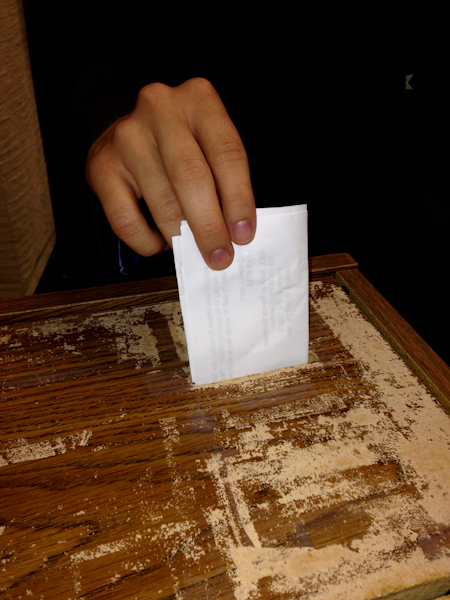Photo by: Henoc Kivuye
Surpassing both the Republican and Democratic Parties in voter registration, more people are registering to vote as independent in Oklahoma.
“An independent voter can mean one of several things,” senior Andrew Binkley said. “Usually what it means is that they are not affiliated with one party or another. They’re voting as nonregistered Republican or nonregistered Democrat.”
Senior Rebecca Hobbes noted the trend of growing independent voters.
“The areas in Oklahoma that have had the most growth of independent voters are the areas with the most youth population,” Hobbes said.
Hobbes also commented on how independent voters fit into the voting system.
“There is no ‘independent party,’” Hobbes said. “They don’t have a platform, because the point of independence is not being with another party.”
This begs the question as to why people would want to become independent voters. Senior Lincoln Dutcher, a Republican, answers that question.
“I imagine people who become independent voters would say it’s because they don’t appreciate partisan politics and because they don’t like some of the things each party stands for,” Dutcher said. “However, it’s probably because they lack strong convictions about their political beliefs.”
Hobbes holds different opinions.
“They don’t want to go Democratic or Republican because they are dissatisfied with what that party is offering them, and they want to have the freedom to be separated and be on the sidelines,” Hobbes said. “They don’t want to align themselves with the ideology and progress or lack thereof that they see coming from each party. They don’t think either one delivers to their satisfaction.”
Binkley adds to this notion.
“I think most recently, [this trend comes from] being fed up with the way that the main parties are working,” Binkley said. “People are becoming fed up with the parties as they are. It’s become more of old rich guys fighting each other.”
However, even though people acknowledge that independent voters are on the rise, there are conflicting views as to whether this is a good or a bad occurrence.
“The increase of independent voters is probably not a good thing, because it shows that fewer Americans know or care where they stand when it comes to politics,” Dutcher said.
Hobbes agreed that the rise of independent voters could have negative implications.
“I also think that it shows that people maybe don’t know what they want,” Hobbes said. “I think there’s a lot of confusion, dissatisfaction and not a consensus of what needs to be done.”
Hobbes also mentioned that from a political party’s perspective, independent voters are a challenge to work with.
“I think that the two major parties wouldn’t view the [rise of independent voters] as a good thing,” Hobbes said. “Party allegiance is a big deal. That’s how you plan your campaign. That’s how you strategize your election and you know who to market to.”
Binkley, on the other hand, claims that the rise of independent voters is beneficial.
“I think in the long run, it’s going to be a good thing,” Binkley said. “Coming up on the 2014 elections, I think we are going to start seeing some of the effects of the congressional in-fighting. We’re going to start seeing the rise of the people fed up with the parties, and we’re going to see more challengers trying to get into the political stand and possibly even succeeding.”
Binkley noted that the rise of the independent voter could make politicians change how they run their campaigns.
“In the past, it was pretty [obvious] how it was going to fall [by] counting the votes of Republican versus Democratic,” Binkley said. “With the rise of the independent voters, you have both Democrats and Republicans trying to get more of the swing votes. I think what we’ll see is a lot more of them playing towards the middle to get the swing votes on their side.”
Many politicians are changing how they strategize their campaigns to appeal to the independent voters, Hobbes said, which could be for the better.
“It’s hard to market to and strategize around a bunch of people who don’t know what they want,” Hobbes said. “It adds an element of ambiguity that strategies and politicians have to work around. It might challenge them to be more forthright, more honest, more clear about what exactly their stances are.”
Dutcher, however, said that he doesn’t think the rise of the independent voter will change anything about the political campaigns.
“I don’t think it will have much of an effect,” Dutcher said. “Those who register as independent either don’t care enough to vote, or they actually do have partisan leanings and will vote with that party in most elections.
An interesting catch regarding the rise of independent voters in Oklahoma is that they wouldn’t be able to vote in the primary elections.
“In Oklahoma, it’s a closed primary ticket, so independent voters in Oklahoma can’t vote for the primary elections,” Hobbes said. “They can only vote in the general election. Independent voters are almost at a disadvantage, because when they do get to vote, they are voting for someone else’s choice.”














Be First to Comment